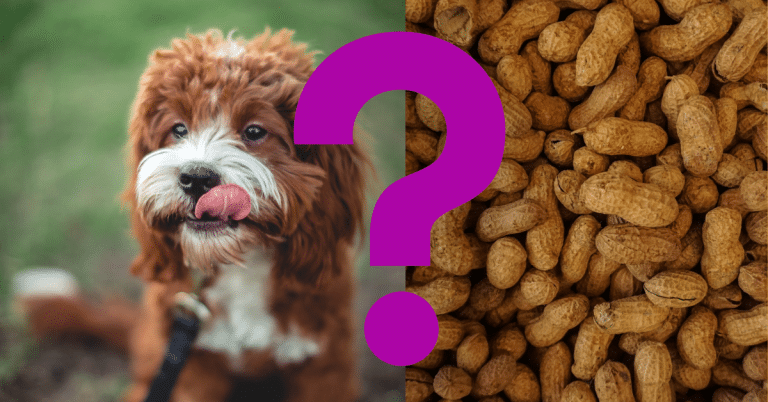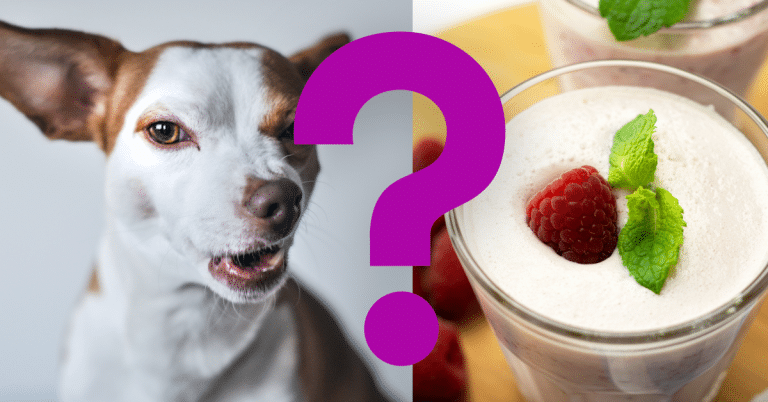Can Dogs Eat Pomegranate Seeds? A vet’s opinion

Pomegranate seeds contain cyanide, but can dogs eat pomegranate seeds?
Pomegranate seeds should not be given to dogs. While pomegranate seeds can be a choking danger and may cause digestive problems, pomegranate meat is often healthy for dogs in little amounts. In addition, pomegranate seeds contain a substance called amygdalin that, when consumed in excessive doses, can emit cyanide. Dogs are poisonous to cyanide, which can cause major health issues.
Let’s dive in:
Benefits Of Pomegranate Seeds For Dogs
Pomegranate seeds should not be given to dogs owing to the cyanide concentration and potential choking hazard; however, it is important to note that pomegranate juice or meat can have certain health advantages for dogs when given in moderation. Before introducing any new food to your dog’s diet, you should however speak with a veterinarian.
Several advantages of pomegranate for dogs include the following:
- Pomegranates are a high source of antioxidants, such as vitamin C and polyphenols. These anti-oxidants can strengthen the immune system and assist in the fight against oxidative stress.
- Pomegranate fruit contains substances that have anti-inflammatory effects. Reducing inflammation may be advantageous for dogs with illnesses like arthritis or allergies since it can lead to a variety of health problems.
- Heart health: According to certain research, eating pomegranates may assist people’s hearts. The antioxidants and anti-inflammatory qualities of pomegranate might potentially aid the cardiovascular system of dogs, even though there is little study on its benefits specifically on canines.
- Support for digestion: Dietary fibre included in pomegranates can help with digestion and encourage regular bowel motions. Moderation is crucial since too much fibre might irritate your stomach.
To determine your dog’s particular tolerance and any potential allergies or sensitivities, always introduce new foods gradually and in tiny amounts. Before introducing any new foods to your dog’s diet, always check with a veterinarian to be sure they are secure and appropriate for your pet.

How To Safely Give Pomegranate Seeds To Dogs
Due to the possible choking hazard and cyanide concentration, it is typically advised to steer clear of providing pomegranate seeds to dogs. However, if you still want to give your dog tiny quantities of pomegranate flesh, you can do so safely by according to these rules:T
- Carefully take the pomegranate seeds out of the fruit. The outer peel and pith should be thrown away since dogs should not eat them.
- Give a tiny serving: Give your dog a little piece of the seed-free pomegranate flesh. Keep a tight eye on your dog to make sure they can handle it without having any negative responses.
- Look out for allergies or sensitivities: Some dogs may react negatively to new meals. Keep an eye out for any symptoms of gastrointestinal distress, such as vomiting, diarrhoea, or changes in appetite. Watch your dog for any indications of swelling, itching, or other allergic responses. If you see any negative effects, stop administering pomegranate right away and talk to your veterinarian.
- The key is moderation: Even if your dog tolerates pomegranate meat well, you should only give it to them sometimes as a treat. Pomegranates are not required in a dog’s diet, and overindulging can still be harmful.
Never forget that it’s better to talk to your vet before adding any new items to your dog’s diet. Based on the requirements and medical issues of your dog, they may offer tailored guidance.
Will Pomegranate Seeds Make A Dog Sick?
It’s possible for pomegranate seeds to make a dog ill. Pomegranate flesh is typically risk-free for dogs in moderation, but the seeds can pose several dangers:
- Pomegranate seeds are hard and tiny, making them a choking hazard for dogs, particularly those of smaller breeds or those who have a tendency to swallow food whole without chewing it first.
- Content of cyanide: Amygdalin, a substance found in pomegranate seeds, has the potential to emit cyanide when consumed in significant doses. Dogs are poisonous to cyanide, which can lead to major health problems.
- Pomegranate seeds can be hard for dogs to digest and can result in digestive trouble, which might include signs like vomiting, diarrhoea, or stomach pain.
Given these dangers, it is typically advised against providing pomegranate seeds to dogs. If your dog unintentionally eats any seeds, keep an eye out for any symptoms of pain or disease. The best course of action is to get advice from your veterinarian if you see any alarming signs. Prioritize your dog’s safety at all times, and seek professional advice before introducing any new items to their diet.
It’s important to take into account the other components and potential additives included in those meals even if the flavouring or essence of pomegranate seeds used in commercial products may not offer a substantial risk. It may also be challenging to determine these goods’ safety for dogs due to differences in the quantity and processing techniques employed.
It is advised to only feed your dog dog-friendly meals that have been specially created to meet their nutritional demands to safeguard their health. You should always seek your veterinarian’s advice and expert opinion before giving your dog any commercially prepared food containing pomegranate or pomegranate seeds. Based on the health and dietary needs of your dog, they may provide you specialized recommendations.

A Vet’s Summary
It’s significant to highlight that owing to the possible hazards, many doctors advise against dogs eating pomegranate seeds.
Significant worries include the possibility that the seeds contain cyanide and the risk of choking. Pomegranate meat itself may provide some health advantages in moderation, however the seeds can be harmful to dogs’ wellbeing. Considering this, it is typically recommended to err on the side of caution and refrain from feeding pomegranate seeds to dogs.
You can also add probiotics in your dog’s daily routine. To promote digestive health and general wellbeing, probiotics for dogs are becoming more and more well-liked as a supplement. Probiotics are helpful microorganisms that can support dogs’ healthy gut flora balance.
It’s better to speak with a veterinarian who can assess your dog’s health, dietary requirements, and any potential hazards related to pomegranate eating to acquire an exact and current advice on this topic. Based on their professional experience, they can give you the best guidance.
Videos To Watch
If you are wondering whether dogs can eat pomegranate seeds, watch this:
If you are wondering whether pomegranate is harmful for dogs, watch this:






